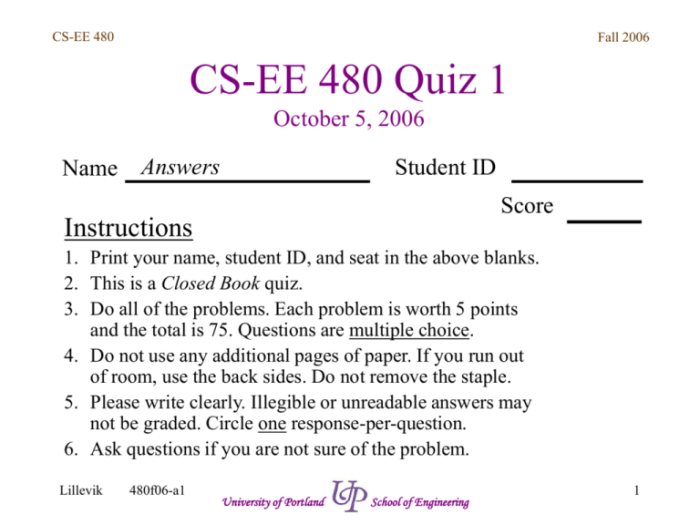Welcome to our comprehensive guide on search and seizure mini q answer key. This essential resource provides a concise and accessible overview of the legal framework governing searches and seizures, empowering you with the knowledge to navigate this complex area of law.
Our guide delves into the historical foundations of search and seizure laws, analyzing landmark Supreme Court cases that have shaped the legal landscape. We explore the exceptions to the search warrant requirement, the purpose and application of the exclusionary rule, and the challenges posed by new technologies.
Overview of Search and Seizure Laws

The Fourth Amendment to the United States Constitution protects individuals against unreasonable searches and seizures. This means that the government cannot search your person, home, or property without a valid warrant, except in certain limited circumstances.
The historical development of search and seizure laws in the United States can be traced back to the English common law. In the early days of the American republic, the courts interpreted the Fourth Amendment to provide only limited protection against searches and seizures.
However, over time, the Supreme Court has expanded the scope of the Fourth Amendment to provide greater protection for individual privacy.
The Exclusionary Rule
One of the most important protections provided by the Fourth Amendment is the exclusionary rule. The exclusionary rule prohibits the government from using evidence that was obtained through an illegal search or seizure in a criminal prosecution. This rule helps to deter the government from conducting unreasonable searches and seizures, and it also protects the privacy of individuals.
Key Supreme Court Cases on Search and Seizure
The Supreme Court has played a pivotal role in shaping the legal framework for searches and seizures in the United States. Several landmark cases have established key principles that guide law enforcement practices and protect individual rights.
Mapp v. Ohio (1961)
In Mapp v. Ohio, the Supreme Court held that the exclusionary rule, which prohibits the use of illegally obtained evidence in criminal trials, applies to the states. This landmark decision extended the protections of the Fourth Amendment to state criminal proceedings, significantly strengthening the rights of individuals against unreasonable searches and seizures.
Other Significant Supreme Court Cases
In addition to Mapp v. Ohio, other Supreme Court cases have had a significant impact on search and seizure law, including:
- Terry v. Ohio(1968): Established the “reasonable suspicion” standard for stop-and-frisk searches.
- Kyllo v. United States(2001): Held that the use of thermal imaging to detect heat emissions from a home without a warrant violated the Fourth Amendment.
- Hudson v. Michigan(2006): Ruled that police may use blood tests for DUI arrests without a warrant if there are exigent circumstances.
- Utah v. Strieff(2016): Upheld the use of DUI checkpoints as a reasonable search if conducted in a neutral manner.
Exceptions to the Search Warrant Requirement

The Fourth Amendment to the U.S. Constitution generally requires law enforcement officers to obtain a search warrant before conducting a search. However, there are several exceptions to this rule, including:
Plain View Doctrine
The plain view doctrine allows law enforcement officers to seize evidence that is in plain view without a warrant if the officer is lawfully present in the location where the evidence is found. For example, if an officer is lawfully present in a home and sees drugs in plain view on a table, the officer may seize the drugs without a warrant.
Consent Searches
Consent searches are searches that are conducted with the consent of the person whose property is being searched. Consent can be express or implied. Express consent is given when the person explicitly agrees to the search. Implied consent is given when the person’s conduct reasonably indicates that they consent to the search.
For example, if an officer asks to search a person’s car and the person does not object, the officer may search the car with the person’s implied consent.
Emergency Searches
Emergency searches are searches that are conducted to prevent imminent harm to life or property. For example, if an officer has probable cause to believe that a person is hiding in a house and is armed and dangerous, the officer may search the house without a warrant to prevent the person from harming anyone.
Exclusionary Rule and its Impact

The exclusionary rule is a fundamental principle in criminal law that prohibits the use of evidence obtained through an illegal search or seizure in criminal proceedings.
Purpose of the Exclusionary Rule
The primary purpose of the exclusionary rule is to deter law enforcement from engaging in unconstitutional searches and seizures. By excluding evidence obtained through illegal searches, the rule discourages police officers from violating the Fourth Amendment, which protects against unreasonable searches and seizures.
Application of the Exclusionary Rule, Search and seizure mini q answer key
The exclusionary rule applies to both physical evidence and statements obtained as a result of an illegal search or seizure. It is triggered when the prosecution seeks to introduce such evidence in a criminal trial. The burden of proving that the evidence was obtained legally rests on the prosecution.
Consequences of Suppressing Evidence
The suppression of evidence obtained through an illegal search or seizure can have significant consequences for the prosecution. It can lead to the dismissal of charges, the reduction of charges, or the acquittal of the defendant. In some cases, the suppression of evidence can even result in the release of the defendant from custody.
Criticisms of the Exclusionary Rule
The exclusionary rule has been criticized on several grounds. Some critics argue that it is too lenient on criminals and that it allows guilty individuals to escape punishment. Others argue that the rule is ineffective in deterring police misconduct and that it places an undue burden on law enforcement.
Alternatives to the Exclusionary Rule
There are several alternatives to the exclusionary rule that have been proposed. One alternative is the “fruit of the poisonous tree” doctrine, which excludes evidence that is obtained as a result of an illegal search or seizure. Another alternative is the “good faith” exception, which allows the admission of evidence obtained through an illegal search or seizure if the police officer acted in good faith.
Technology and Search and Seizure: Search And Seizure Mini Q Answer Key

Advancements in technology have significantly impacted search and seizure practices, presenting both challenges and opportunities for law enforcement and individuals’ privacy rights.
Drones
Drones, also known as unmanned aerial vehicles (UAVs), have become increasingly common for surveillance purposes. They offer a cost-effective and efficient way to collect aerial footage and data. However, their use raises concerns about privacy violations as they can access areas that would otherwise be difficult or impossible to search.
Body Cameras
Body cameras worn by police officers have gained widespread adoption. They provide an objective record of interactions between officers and the public, enhancing transparency and accountability. However, they also raise concerns about potential privacy breaches, as officers may inadvertently capture sensitive or private information.
Other Surveillance Technologies
Other surveillance technologies, such as facial recognition software and automated license plate readers (ALPRs), have also become prevalent. These technologies can assist law enforcement in identifying suspects and tracking movements, but they also raise concerns about the potential for abuse and the erosion of privacy.
Balancing Individual Rights and Public Safety

The protection of individual privacy is a fundamental principle in any just and equitable society. However, this right must be balanced against the need to ensure public safety and maintain order. Search and seizure laws play a critical role in striking this delicate balance.
Protecting Individual Privacy
Unreasonable searches and seizures can infringe upon an individual’s right to privacy. The Fourth Amendment to the U.S. Constitution protects against such intrusions by requiring that searches and seizures be conducted with a warrant supported by probable cause. This ensures that law enforcement has a valid reason for searching or seizing property and that the search is conducted in a reasonable manner.
Ensuring Public Safety
On the other hand, law enforcement agencies need the ability to conduct searches and seizures to protect public safety. This includes searching for evidence of crimes, apprehending suspects, and preventing imminent threats. Without the authority to conduct searches and seizures, law enforcement would be severely hampered in their ability to keep communities safe.
The Role of Search and Seizure Laws
Search and seizure laws provide a framework for balancing these competing interests. They establish clear rules for when and how searches and seizures can be conducted, ensuring that individual privacy is protected while also allowing law enforcement to carry out their duties effectively.
By striking this balance, search and seizure laws contribute to the maintenance of a just and equitable society.
General Inquiries
What is the Fourth Amendment protection against unreasonable searches and seizures?
The Fourth Amendment to the U.S. Constitution protects individuals from unreasonable searches and seizures by requiring law enforcement officers to obtain a search warrant before conducting a search or seizure.
What is the plain view doctrine?
The plain view doctrine is an exception to the search warrant requirement that allows law enforcement officers to seize evidence that is in plain view without a warrant if they are lawfully present in the location where the evidence is found.
What is the exclusionary rule?
The exclusionary rule is a legal principle that prohibits the use of evidence in court if it was obtained through an illegal search or seizure.